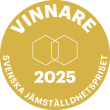Reportage
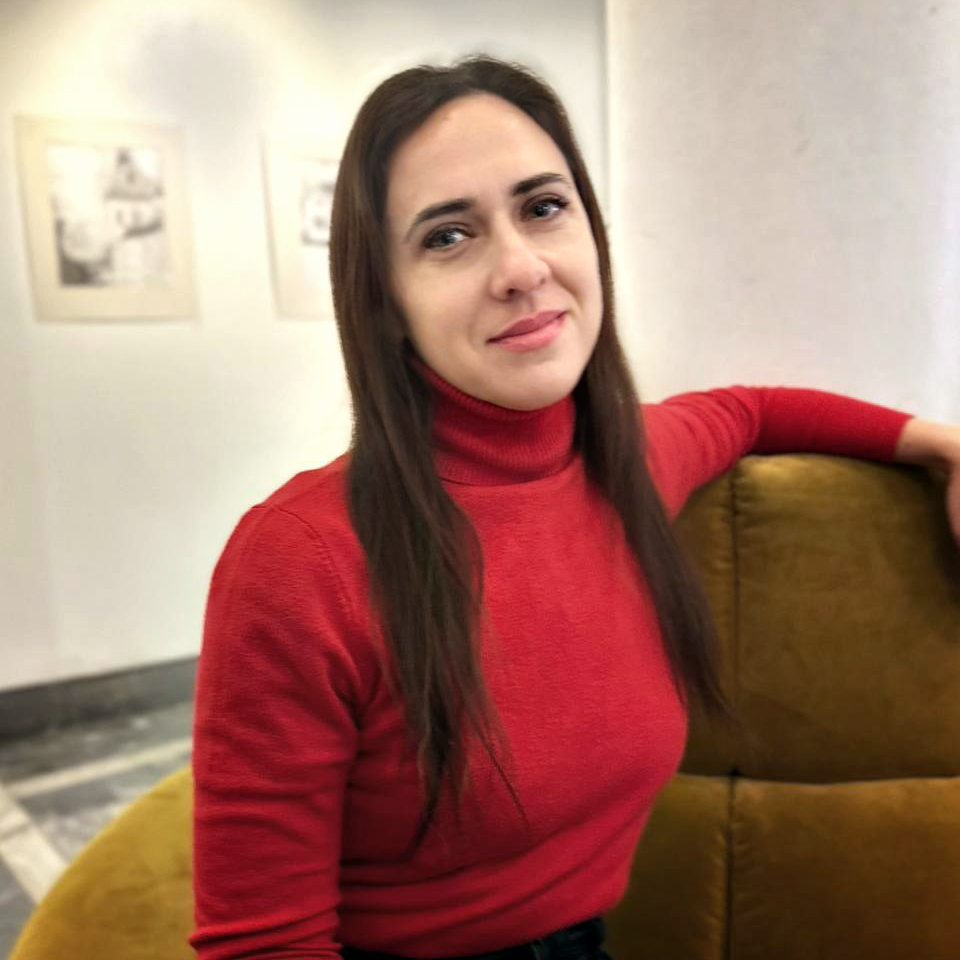
Jag ser inga skillnader mellan ukrainare, svenskar eller folk från andra länder."
”Vi har alla samma önskan i livet, att leva ett tryggt och bra liv för oss själva och våra barn. Det är det viktigaste!” säger Tetyana Rudavina.
För knappt två månader sedan, i oktober, kom hon till Sverige från Ukraina tillsammans med sina två söner Tymofiy, 10 år, och Rodion, 5 år. Nu bor de i Järfälla, en ny plats i ett nytt land, långt från det som en gång var deras vardag.
”Man känner sig så vilsen i början. Det är svårt att förstå hur allt fungerar och vad man ska göra härnäst”, berättar Tetyana och beskriver den första tiden som en prövning.
Att bygga upp ett nytt liv i ett land där språket och systemen är nya är ingen enkel resa. Men med små steg framåt ser Tetyana en ljusare framtid för sig och sina barn.
Jag älskar att vara med mina barn, att spendera mycket tid med dem".
James är en engagerad pappa till fem barn som vill ge sina barn den trygghet och kärlek han själv saknade som barn. James är född i Sydsudan men tillbringade stora delar av sitt liv i flyktingläger i Uganda, där familjen hamnade på grund av kriget. Han berättar om hur viktigt det är för honom att tillbringa tid med sina barn och delta i deras vardag.
Han märker tydliga skillnader i hur pappor är med sina barn här, jämfört med i sitt hemland Sydsudan.
”Här ska man till exempel gå med sitt barn till skolan och hämta dem. Så är det inte i mitt hemland. Det var svårt i början, men nu har det blivit normalt. Jag ser många pappor som leker med sina barn, fikar och är på lekplatser”.
James berättar att han och hans fru inte bara delar ansvaret för barnen, de delar hushålls- sysslorna också. Så gjorde de redan i Uganda, där de bodde som flyktingar. De bestämde sig tidigt för att jobba tillsammans. Motivationen att vara en närvarande pappa kommer från hans egna erfarenheter av sin far, som var en frånvarande förälder som knappt hade med barnen att göra alls.
”Det är viktigt att vi jobbar tillsammans för att bygga en familj där alla kan växa och där det finns kärlek. Mamma och pappa är båda ansvariga för barnens liv.” Läs hela reportaget här:
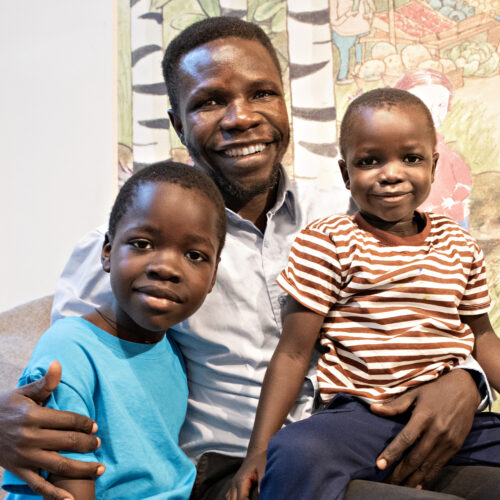
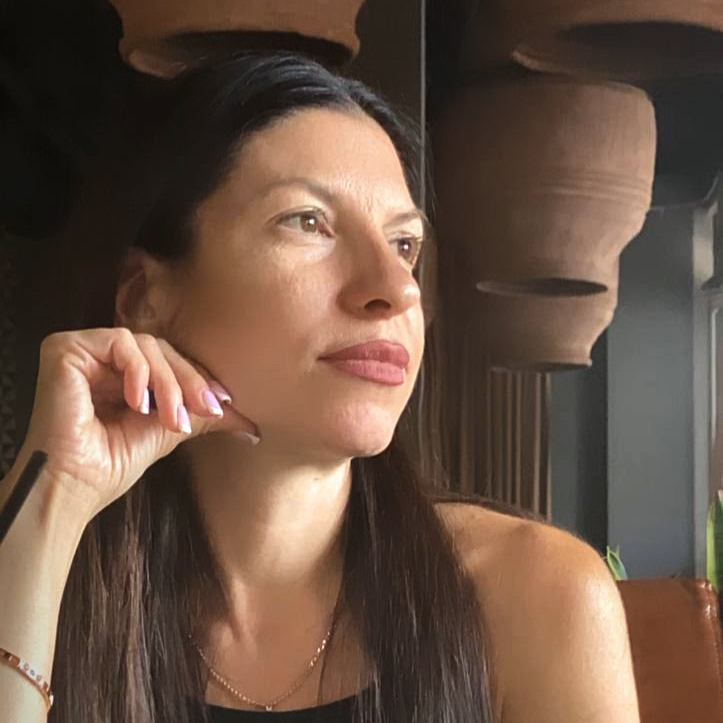
Vi kände oss som om vi hade landat på en annan planet"
När Larysa Serhieieva och hennes familj anlände till Sverige i höstas, för knappt två månader sedan, var allt nytt och överväldigande. De lämnade kriget och oroligheterna i Ukraina bakom sig och sitt hem i Izmail, en stad i Odessa-regionen, för att börja om i ett land där de varken kan språket eller känner till vardagen. ”Vi visste ingenting om Sverige, och jag förstod snabbt att min engelska inte räcker här,” säger Larysa, 43, med ett skratt.
Med sin yngsta dotter och make försöker hon nu hitta fotfästet i den svenska tillvaron. ”Min äldre dotter är i Polen, och vi tre tog oss till Sverige. Vi kände oss väldigt vilsna i början,” berättar hon. Det var via Migrationsverket som Larysa fick höra om Svenska med baby. En ukrainsk kvinna delade en Telegramkanal, och efter att ha börjat gå till träffarna känner hon sig alltmer hemma. ”Vi blev välkomnade direkt, och även om vi inte pratar svenska översätts allt för oss. Det känns som ett viktigt första steg,” säger hon..
Read the full story here
Jag vill ge min dotter trygghet och frihet"
Efter två år i krigets Ukraina tog Olekandra Stepanenko, 31, ett av sitt livs svåraste beslut. Hon lämnade sitt hem och sitt arbete för att börja om i Sverige – höggravid och på jakt efter säkerhet. Nu, med sin tre månader gamla dotter Sofia, ser hon tillbaka på resan som förändrade allt.
När Olexandra anlände till Sverige i maj 2024 var hon gravid i sjunde månaden. Med ett krig i ryggen klev hon av planet med en enda tanke: att ge sitt barn ett bättre liv.
”Jag ville ha ett normalt och tryggt liv. När jag blev gravid förstod jag att det var dags att lämna,” säger hon.
Hemma i Kharkiv hade hon tjänstgjort i de ukrainska väpnade styrkorna sedan 2020. Först under den gemensamma insatsstyrkan, senare som soldat vid frontlinjen i Donetsk och Kharkiv oblast. När Ryssland inledde sin fullskaliga invasion 2022 blev vardagen i uniform intensiv.
”Jag är stolt över att jag gjorde min del, men när jag väntade barn var det dags att tänka om. Jag ville ge min dotter något annat, ett tryggt liv där vi inte behöver vara rädda.”
Läs hela reportaget här:
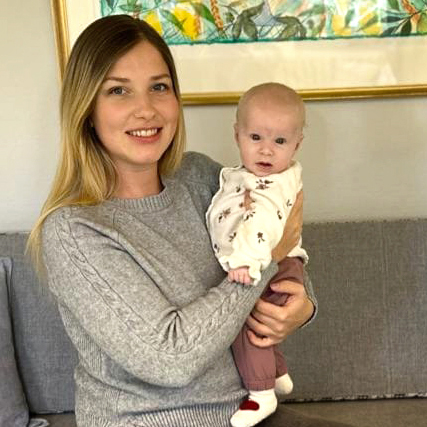
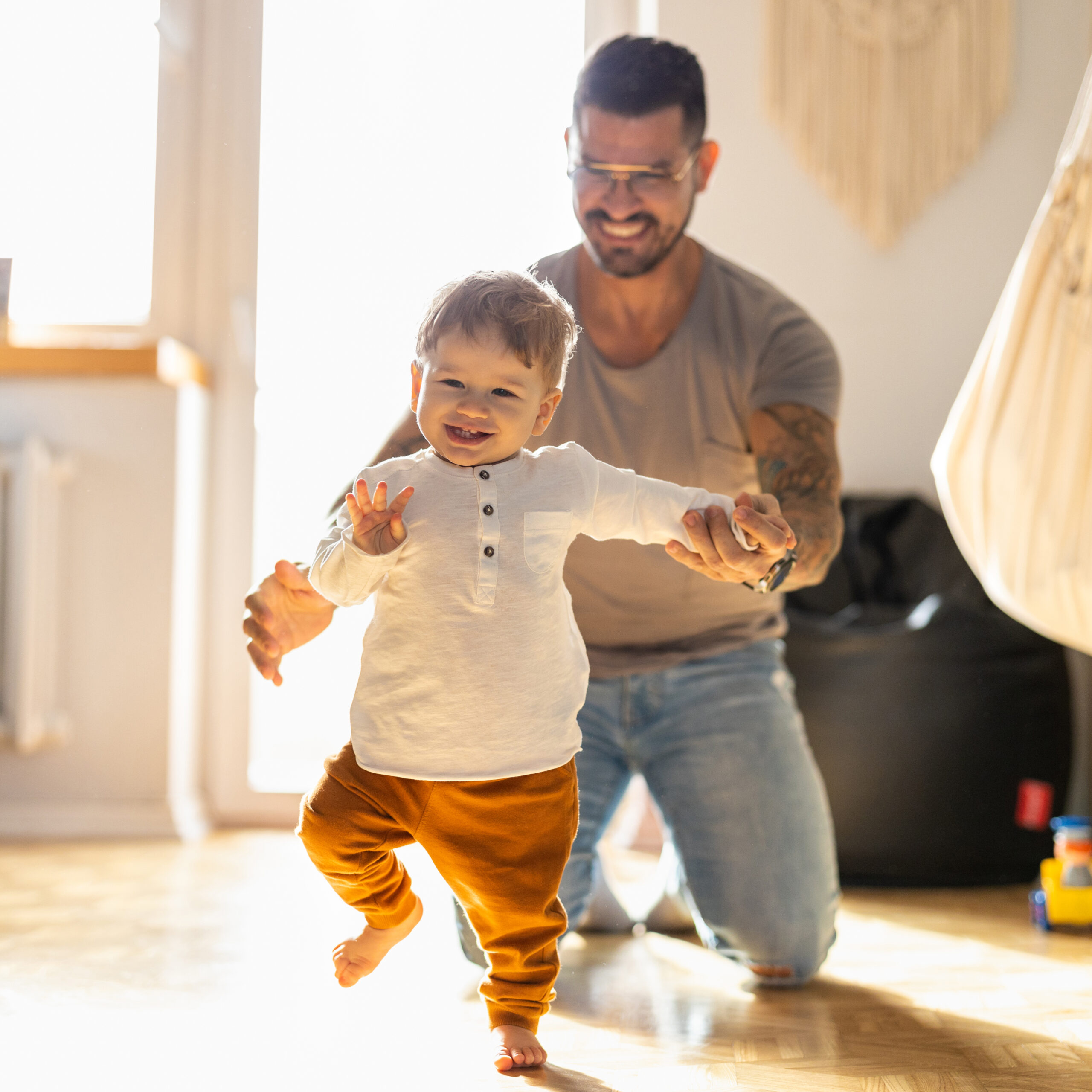
Jämställda föräldrar, jämställt arbetsliv."
Det finns många goda skäl att stärka pappans roll som en närvarande och ansvarstagande part i familjen. Lina Stenberg, debattör och initiativtagare till Jämställdhetsinstitutet, berättar om hur kvinnornas deltagande på arbetsmarknaden påverkas.
Att stärka pappans roll som en aktiv och närvarande del i familjen är avgörande, inte bara för barnens välmående utan också för att frigöra tid och utrymme för kvinnor möjligheter och utveckling på arbetsmarknaden. När pappor tar större ansvar för barnen och hemmet ökar mammors möjligheter på arbetsmarknaden, vilket i sin tur minskar den ekonomiska ojämställdheten mellan könen.
Read the full story here
Allt handlar om framtiden för barnen.”
Att komma till ett nytt land som nybliven pappa är en stor utmaning. Sayed Mohammad Jalil, samordnare för Svenska med babys pappaverksamhet, arbetar för att skapa en ovärderlig gemenskap där utmaningar och glädjeämnen, allt för barnens framtid.
”Vi har så många fina bevis på att vårt arbete är viktigt”, säger Sayed Mohammad Jalil, samordnare för Svenska med babys pappaverksamhet. ”Möjligheten att träffa andra pappor och prata om funderingar, utmaningar och glädjeämnen är ovärderlig.”
Som samordnare för pappaverksamheten på Svenska med baby arbetar Sayed dagligen med att stötta andra pappor i deras föräldraskap. Men hans egna resa började långt från Sveriges gränser.
“Jag kommer från Afghanistan och kom till Sverige 2018. Min fru var gravid och hon kom hit före mig. När jag anlände var vår son redan två år gammal. Senare kom även vår dotter.”
Read the full story here
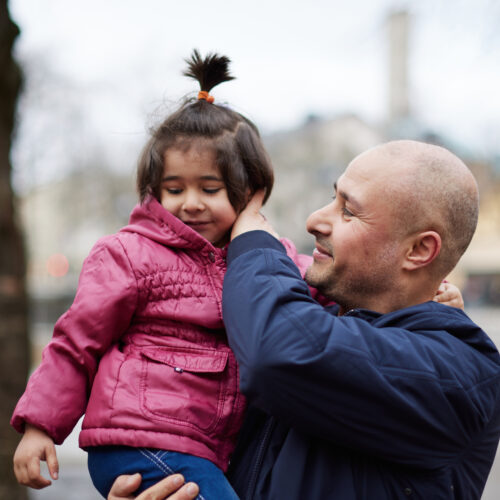
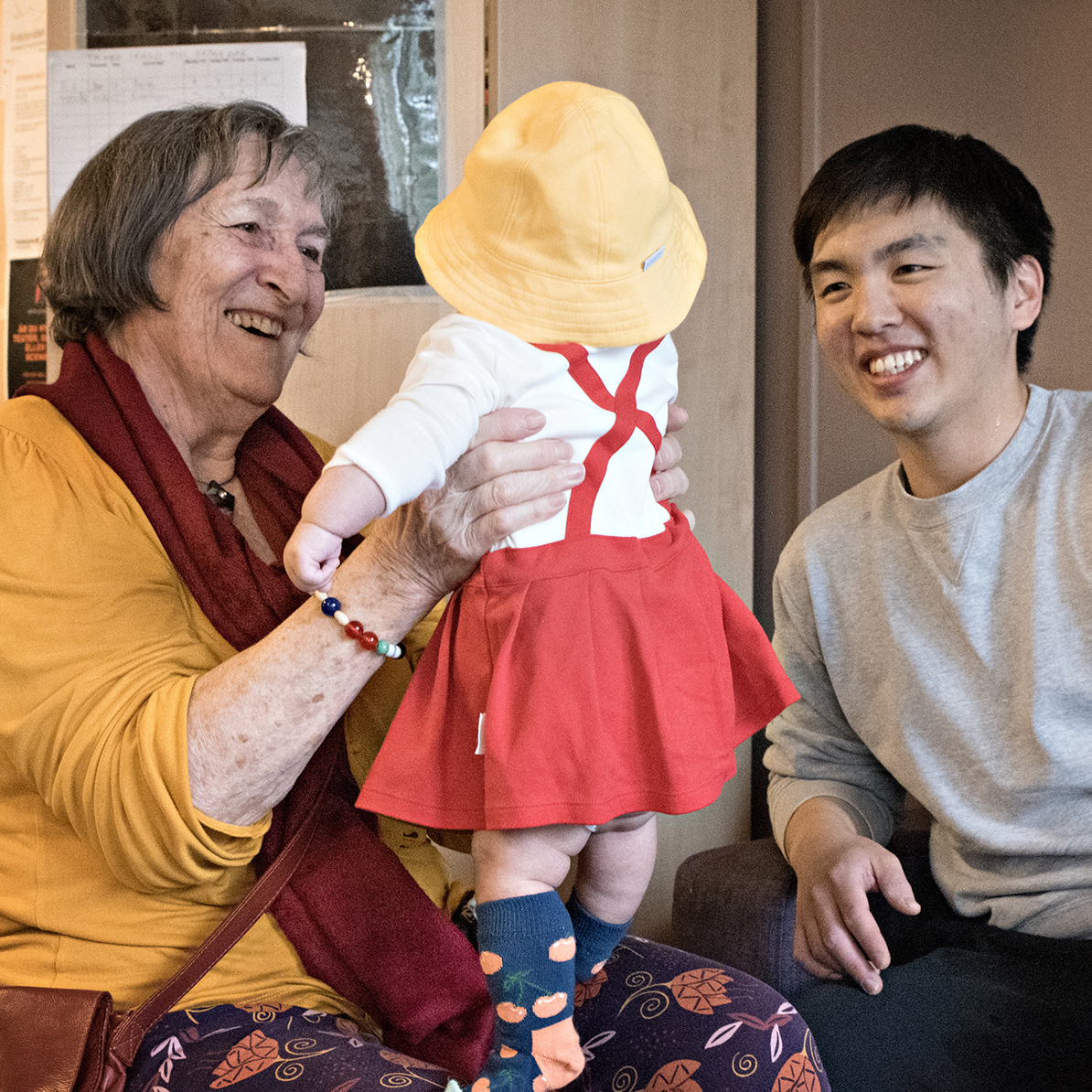
Jag valde inte uppdraget, det kom till mig."
Att bli volontär för Svenska med babys projekt Tre generationer möts skedde genom en lycklig slump.
”Jag blev erbjuden att bli frivillig, tänkte till en stund och tackade ja. Uppdraget lockade mig och jag tog den utsträckta handen. Mitt motto har alltid varit att finnas till för medmänniskan,” säger Ursula Sundström. Denna inställning har präglat hennes liv, både som barnsköterska, genom vilket hon har arbetat på flera utlandsuppdrag, och i hennes engagemang att stötta andra medmänniskor.
Som nybliven volontär i höst beskriver Ursula sin roll som att ta sina första steg i något spännande och betydelsefullt.
”Jag har ännu inte prövat mina vingar, då jag är nybliven volontär i höst. Än så länge har jag inte behövt ta eget ansvar, men ’lyssnar in’ och lär mig genom att vara aktiv och delta på träffarna.” Hon uppskattar att få tid att växa in i uppgiften som gruppledare, något som ger henne både glädje och trygghet. Read the full story here
Det är vi pappor och en kopp kaffe!"
“Det bästa med pappaträffarna är att få träffa människor från olika kulturer och få kliva ur sin egen bubbla”, säger Nils Mattsson.
”Jag började gå hit när jag var föräldraledig med min son Josef”, berättar Nils. ”Träffarna gav oss en helgaktivitet som vi kunde göra tillsammans. Sedan var steget inte långt till att bli volontär. Här kan vi diskutera allt från sömnbrist till skärmtid på ett avslappnat sätt.”
Read the full story here
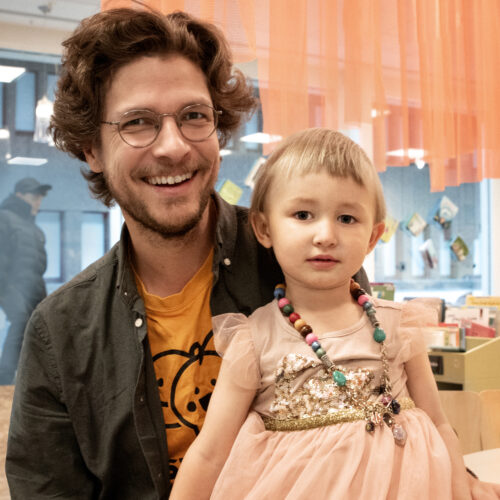
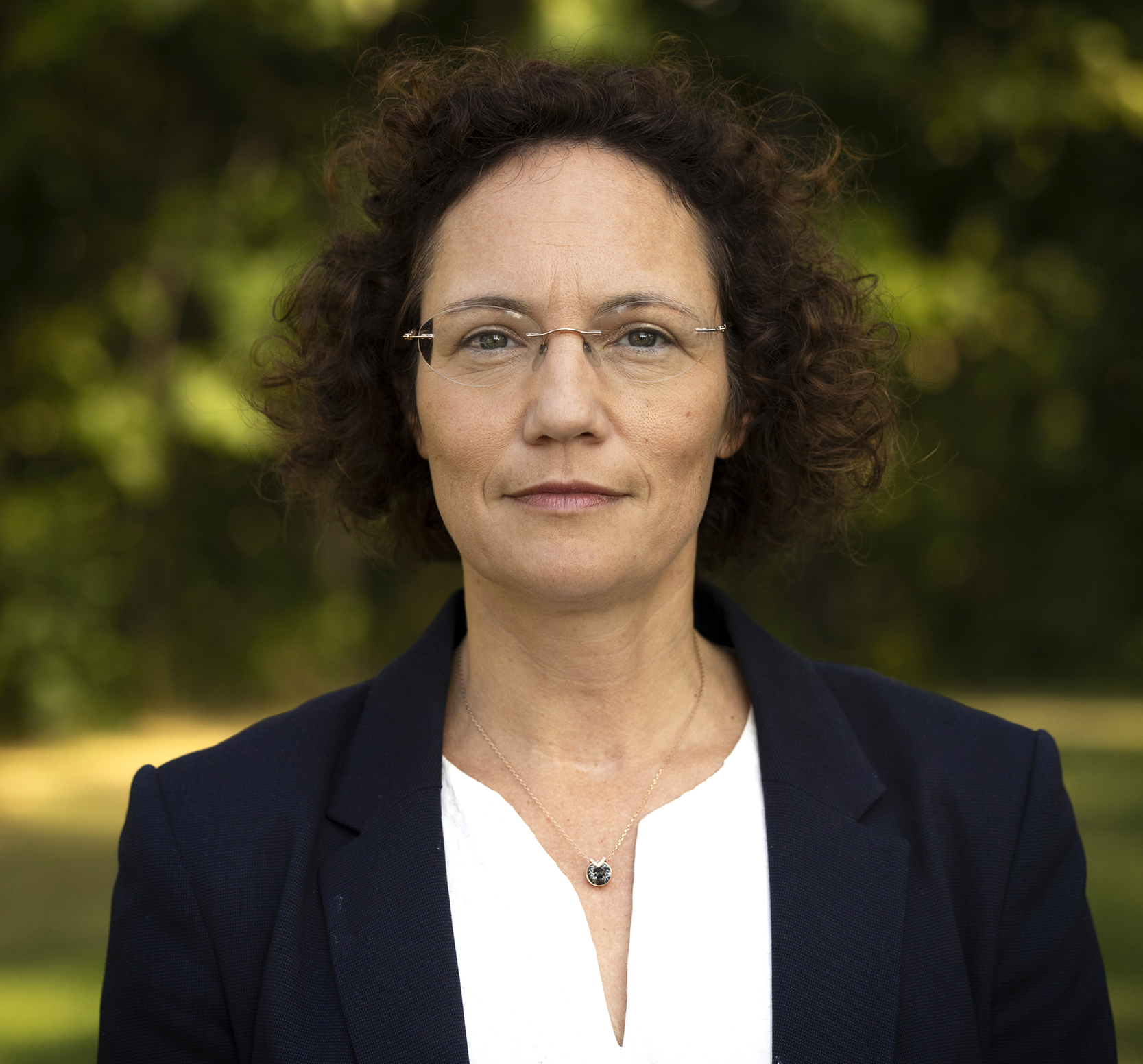
Det behövs mer kunskap om pappors betydelse.”
Barn med engagerade pappor utvecklar bättre språk, färre beteendeproblem och starkare emotionell självreglering. Trots detta riktas vårdens information och stöd oftast mot mamman, och pappans avgörande roll förbises. Möt Anna Sarkadi som bland annat forskar om pappans roll.
Pappans roll i barnets liv har under de senaste decennierna fått allt större uppmärksamhet inom forskningen. Anna Sarkadi är professor i socialmedicin vid Uppsala universitet och medlem i forskargruppen CHAP, Child Health and Parenting. Hennes forskning fokuserar på föräldraskapets betydelse för barns hälsa och utveckling. Hon har genom sina studier belyst hur viktig pappans närvaro och engagemang är för barnets kognitiva och emotionella utveckling. Så pass viktigt att Sarkadi tycker att det är märkligt att det inte görs större satsningar för att inkludera papporna mer i föräldraskapet. Read the full story here
Meet Haris Agic. PhD in Social Anthropology, a sought-after speaker, debater, songwriter and artist
"I usually say that diversity is a fact - not something we can really discuss, be for or against. Diversity just is. We humans are different. End of story."
Meet Haris Agic. PhD in Social Anthropology, a sought-after speaker, debater, songwriter and artist.
"I'm not referring to biological differences at all, because they are so small and insignificant that it is anti-intellectual to talk about them at all. Biology can affect things that are outwardly visible, such as skin pigment or hair color and texture/quality and the like, but it has nothing to do with what different peoples are like. So what I mean when I talk about people being different is that we are qualitatively different. We have different experiences, horizons of understanding, habits, traditions and so on. To strive for some kind of homogeneity in society in terms of who we are is pure utopia. On the other hand, something we can and should do is to strive for diversity in all spaces and arenas of society. That is, to create a representation where the undeniable diversity of society is also reflected in all our organizations, not least in various management groups and boards. However, this is often easier said than done. Why is this so? The reason is the power structures that societies are generally built around. In Sweden and the rest of the Euro-American world, it is particularly about the whiteness norm as the dominant power structure." Read the full story here
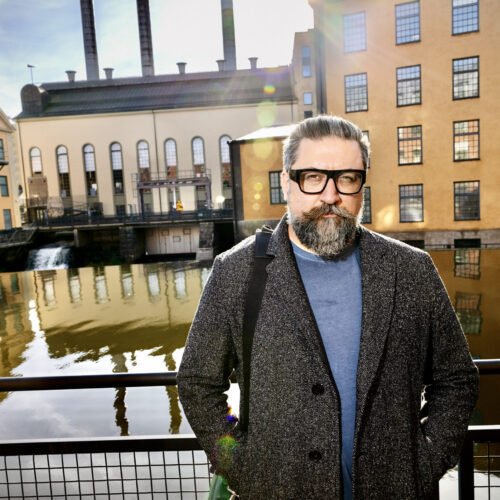
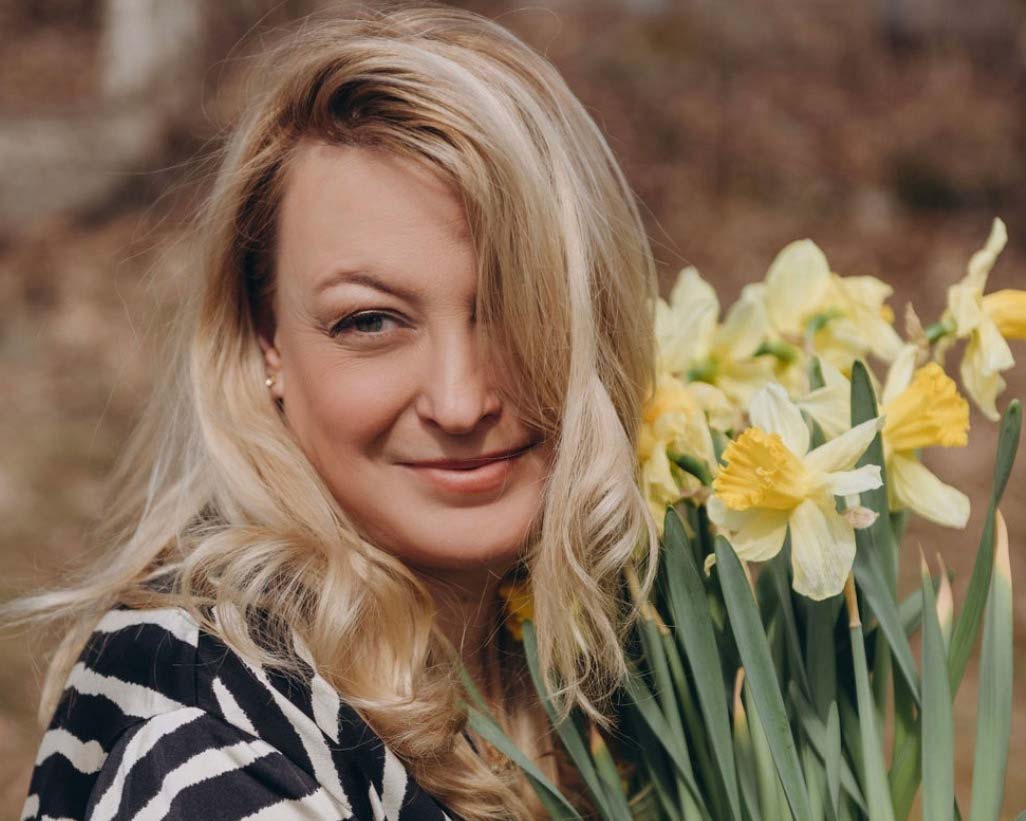
From Kiev to Stockholm
We were so warmly welcomed and supported by so many Swedes when we fled here after Russia invaded our homeland. It meant a lot to us when our whole life felt upside down!" says Mariia Kuznetsova with a touching tone. She lives in Stockholm with her two daughters, now 18 and 10 years old, and her third daughter who was born in Sweden 11 months ago.
In Kiev, where they used to live, Mariia ran her own restaurant business for many years, one of many things they had to leave behind. Settling into the new life has been challenging for the whole family. For example, having to learn a new language. But they've worked hard at it, and Mariia talks about the different language skills in the family. The eldest daughter, who is now in high school, is the most comfortable with Swedish and speaks it fluently. The middle daughter communicates better in English but understands Swedish, while her youngest daughter has just started speaking, and is learning new Swedish words through her visits to the open preschool.
"She loves the 'Babblers' and imitates them, which is so cute," says Mariia with a smile. For her, her work has been a big part of the language learning process.
"I get a lot of language training by talking to colleagues at work," she adds. Read the full story here
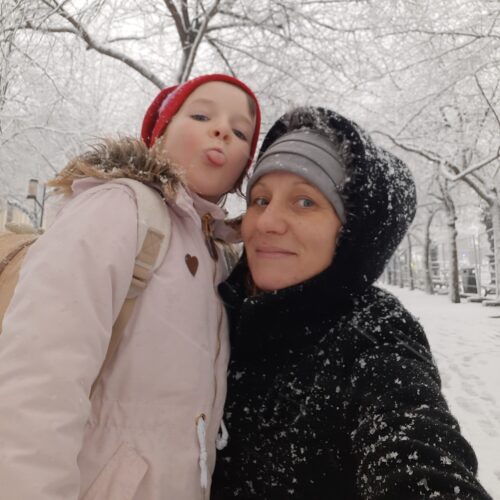
From Ukraine to Sweden: Alya's story of escape and life in a new country
"Having to flee your home country and leave most of your family behind is very painful, but I am grateful to Sweden for the opportunity to live in safety with my daughter."
Alya, or Alevtyna Hryshyna as her full name is, came to Sweden in April 2022 with her five-year-old daughter. They fled their home in Pokrovsk, Ukraine, when Russia invaded the country. Left behind were her son, husband, cat and dog. The family. All those who are closest to Alya's heart. "The first time in Sweden was difficult for my daughter. She refused to go to preschool at first, because no one there could understand her. However, we were lucky and got to know a wonderful Swedish family who did everything to help us adapt to the new environment." Now Alya's daughter is seven years old, she attends regular Swedish school and has both Swedish and Ukrainian friends. Read the full story here.
DaddyDaddyDaughters tell about The Book for Dad
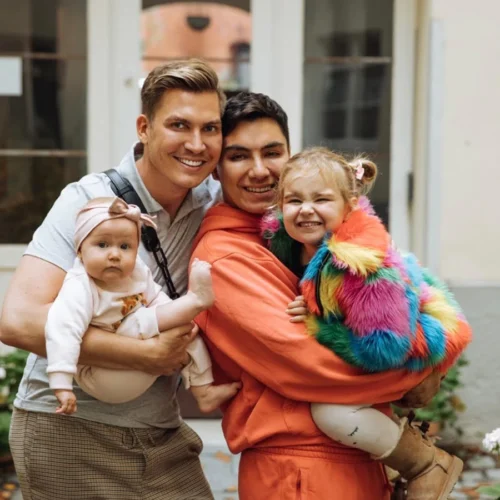
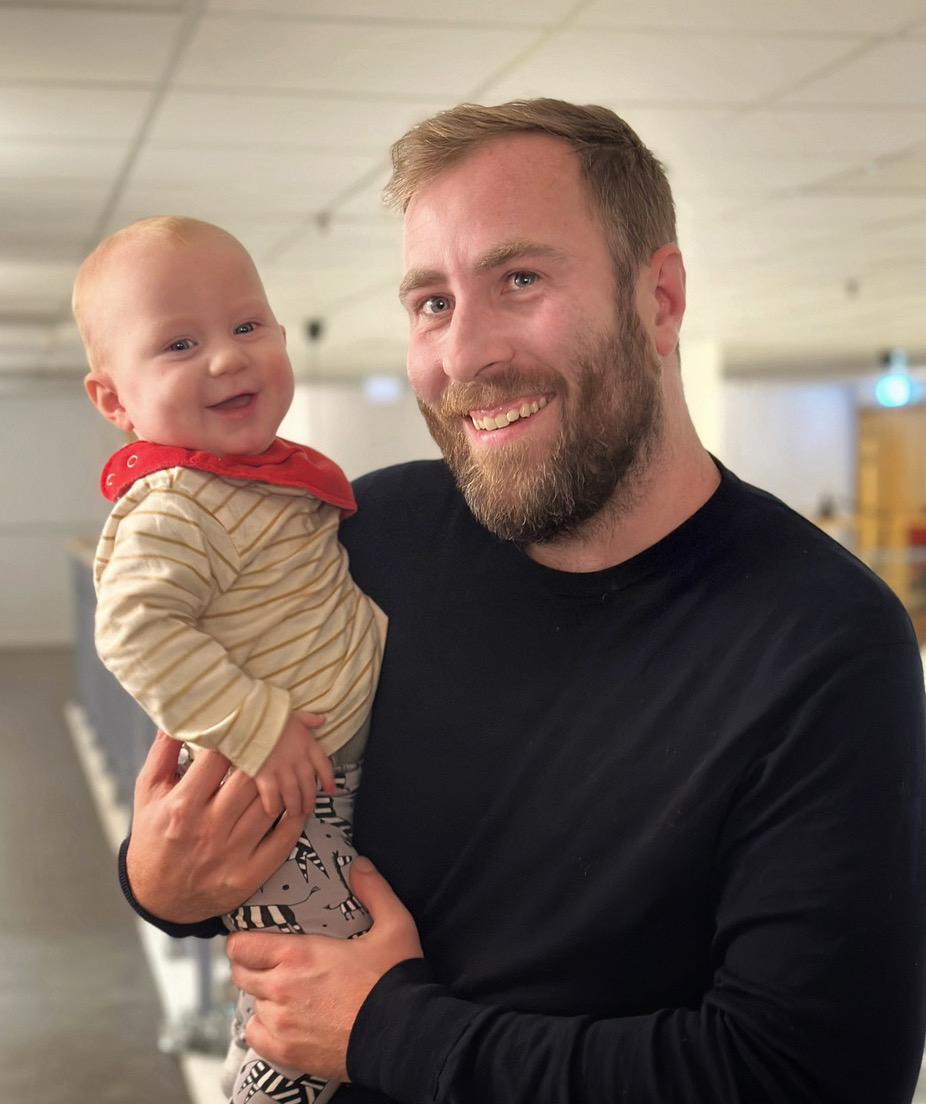
Meet Andreas, our new dad ambassador in Vällingby
"Bringing dads together and creating a common forum to discuss and explore the role of fatherhood and all that it entails is super important to me! But it's also important to have a place where we dads can hang out and have fun with our kids," says Andreas, Svenska med baby's new Dad Ambassador, as he picks up his seven-month-old son Hannes.
Andreas also missed conversations with other fathers. From his own experience, he knows that fathers' conversations about parenting are often different from those of mothers. By just bringing dads together, it creates an environment where they can talk openly and share their thoughts in a different way. Read the full story here.
A Ukrainian family with children adapting to Sweden
"I feel at home here in Sweden and love the Swedes' free approach to nature and culture. Taking long walks in the forest, cycling and visiting the swimming pool are some of my favorite activities," Tetiana Hrebeniuk, mother of two sons, Nikita, 12, and Svyatoslav, 5, talks about her family's adjustment to life in Sweden after fleeing the war in Ukraine over two years ago.
"We have done our best to find our place here in Sweden. But the children have taken the move here in slightly different ways." She describes how Nikita has quickly integrated into Swedish society, moving from an adaptation class to now studying with Swedish children in the same class." It's amazing to see how confident and comfortable he has become. He loves the culture and nature here, and he likes how the teachers at the school respect the children's rights. Yes, on the whole he is very happy in his new country." Read the full story here.
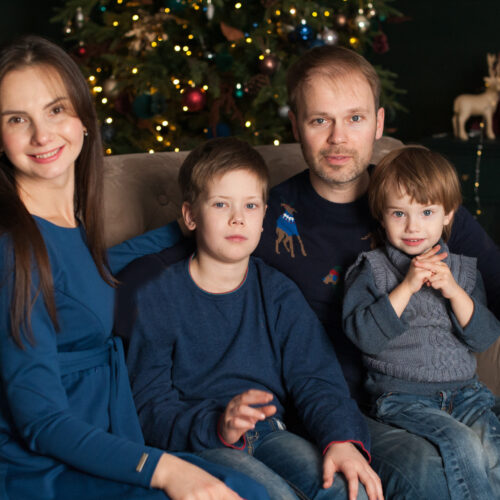
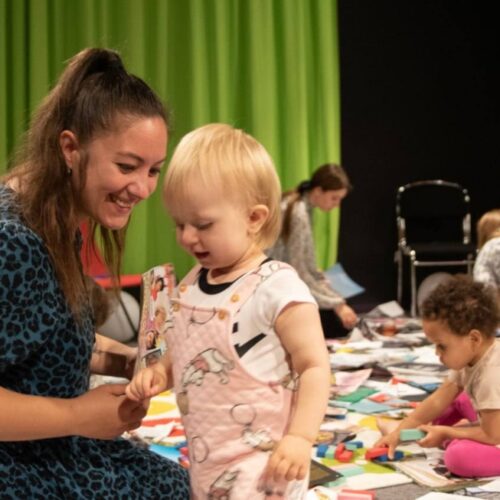
Olena Lymanska talks about life as a single mother in Sweden
"I like it here and I'm starting to feel more at home," says Olena with a big smile. "The people in Sweden are so friendly." Olena Lymanska is one of the many Ukrainians who came to Sweden when the war broke out just over two years ago. As a single first-time mother, navigating her new home country is not easy, but Olena feels she is settling in more and more and really enjoys living here. Read the full story here.



